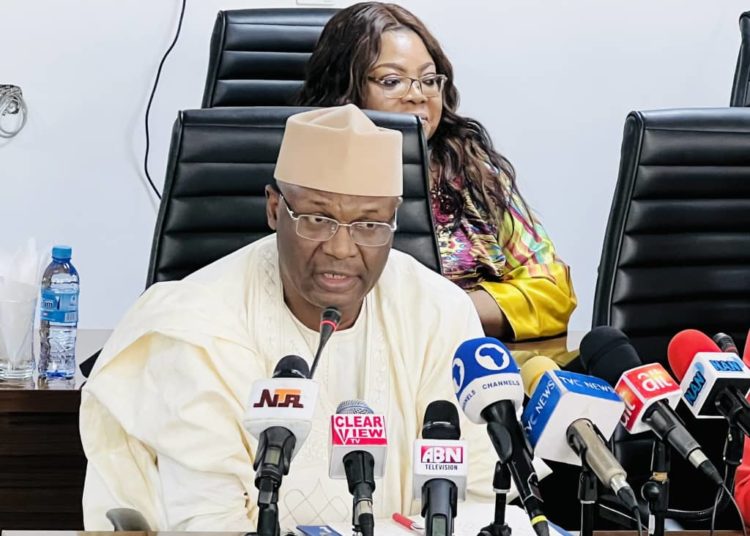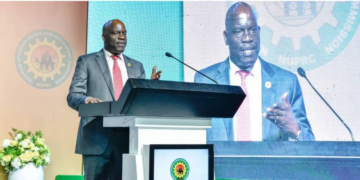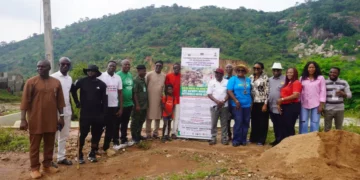Independent National Electoral Commission (INEC) has expressed worry over clashes among parties and their supporters in some states of the country at the ongoing campaigns ahead of the 2023 general election.
INEC lamented the reported denial of access to public facilities for parties and candidates in some states of the federation, and cautioned parties as well as their supporters to focus on issues and steer clear of attacks on each other.
The commission’s chairman Mahmood Yakubu, who raised these concerns at the training of master trainers on technologies for the 2023 general elections held in Abuja yesterday said the acts violate the Electoral Act 2022.
Besides the Electoral Act 2022, he said the act also negates the voluntary commitment by all political parties and candidates to the letter and spirit of the Peace Accord signed about three weeks ago under the auspices of the National Peace Committee (NPC).
Yakubu stressed that parties, candidates and their supporters should not by acts of commission or omission further complicate the prevailing security situation in the country.
According to him: “Parties, candidates, and their supporters should not by acts of commission or omission further complicate the prevailing security situation in the country. A peaceful electioneering campaign is critical to the conduct of peaceful and credible elections.”
Yakubu stated that the commission would continue to monitor the situation closely and convene a meeting with leaders of political parties next week to discuss, among other issues, the imperative of peaceful campaigns and equal access to public facilities.
He also said, the commission would meet with the security agencies under the auspices of the Inter-Agency Consultative Committee on Election Security (ICCES) next week.
On the training, Yakubu said: “From the experience of recent off-cycle elections, the commission is convinced that a critical success factor in the deployment of technology in elections is training.
“We need to build the capacity of the staff involved not only to competently handle the devices during the accreditation process but also respond effectively to any glitches that may occur during elections.”
He said INEC’s plan for the 2023 general election is to commence the training of election officials early and for a longer period of time for optimal understanding of the processes and procedures in order to serve Nigerians better, adding that a key component of this effort is election technology.
The INEC chairman reiterated that the combination of the Bimodal Voter Accreditation System (BVAS) and the IReV portal had come to stay as a means of voter accreditation and transmission of election results.
According to him, “over the last two years, the commission has increased the deployment of technology in the elections in Nigeria. Systems and portals have been designed and developed to cater for different electoral activities ranging from voter registration and accreditation, result transmission from the polling units, the nomination of candidates by political parties to the accreditation of polling agents, observers and journalists for elections.
“Of these innovations, most Nigerians are more familiar with the Bimodal Voter Accreditation System (BVAS) which doubles as a device for accreditation as well as the upload of the Polling Unit level result sheets to the INEC Result Viewing (IReV) portal in real-time on election day. These innovations have increased transparency and public confidence in the electoral process. They are also part of the legal requirements for conducting elections in Nigeria.”
In his goodwill message, Seray Jah, the country director, International Foundation for Electoral Systems, IFES/Nigeria expressed the body’s readiness to continually partner with INEC in achieving its mission of serving as an independent and effective election management body committed to conducting free, fair, and credible elections for sustainable democracy in Nigeria.
“This training is significant as it presents a huge opportunity for the Commission to enhance the transparency and credibility of elections through the deployment of technology on a large scale for the conduct of the 2023 General elections, using the Electoral Act 2022.
“The training would help the commission to generate a pool of master trainers that will support the cascade training of over 10, 000 technical support staff across the 36 states and the FCT, for the 2023 General elections.
Jah said the skills gathered during the master trainers who had been carefully selected by the commission would be useful in training the Registration Area Technical Support Staff (RATechSS) who would be deployed during the elections to troubleshoot issues arising from technological devices deployed during the 2023 general elections.





